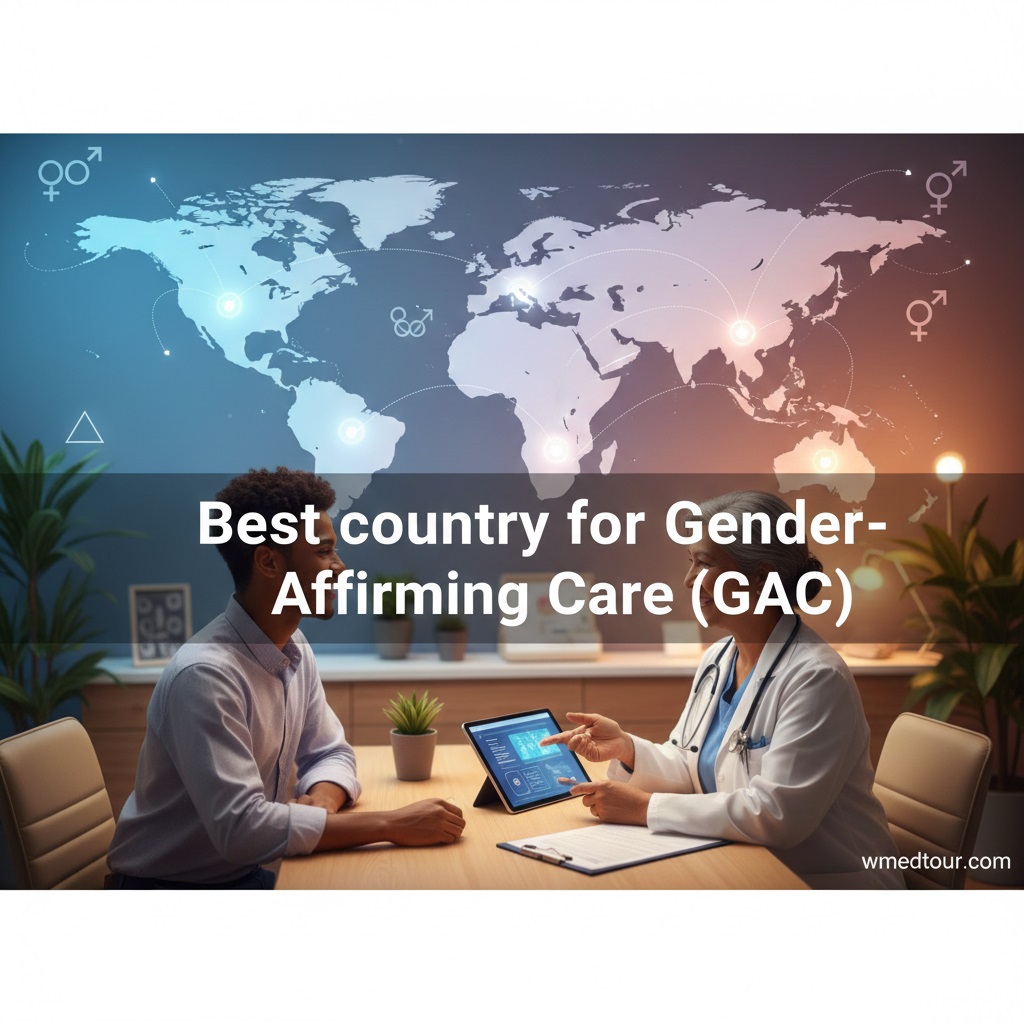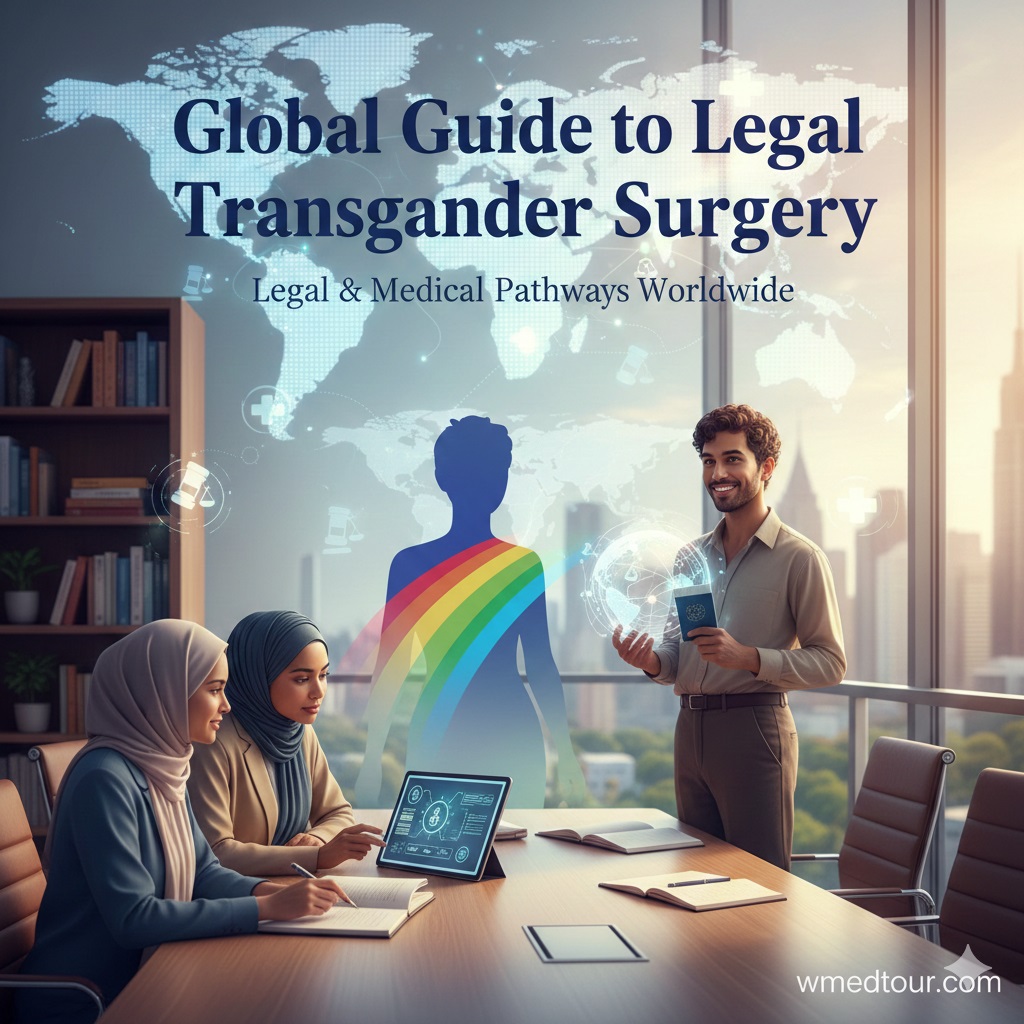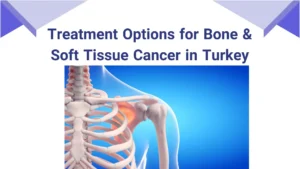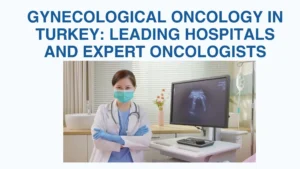Best Country for Gender-Affirming Care (GAC) ⚧ 2026: Global Patient Guide
An authoritative, empathetic comparison of surgical excellence, cost, and legal frameworks for your transition journey.
Executive Summary 💡
Choosing the Best Country for Gender-Affirming Care (GAC) 2026 requires careful consideration of surgical expertise, legal security, and overall cost. For 2026, Thailand maintains its reputation as a global pioneer for aesthetic results in M2F (Male-to-Female) procedures, offering decades of experience. Conversely, Spain provides comprehensive, publicly-funded care within a highly progressive European legal framework, but this often involves lengthy wait times.
Crucially, Iran stands out for its unparalleled combination of high surgical volume, highly skilled plastic and reconstructive surgeons, and exceptional affordability. Therefore, for patients prioritizing surgical quality and extreme cost-effectiveness, Iran is emerging as a dominant force in the global GAC landscape. The definitive Best Country for Gender-Affirming Care (GAC) 2026 ultimately hinges on your personal needs: affordability points to Iran, traditional surgical volume points to Thailand, and legal accessibility within the EU points to Spain.
Introduction: Defining Gender-Affirming Care (GAC) in 2026 🌍
The global landscape for Gender-Affirming Care (GAC) 2026 continues its rapid evolution, driven by patient-centered legislative changes and increased medical specialization. GAC represents a full spectrum of treatments, including psychological support, Hormone Replacement Therapy (HRT), and complex surgical interventions like Gender Confirmation Surgery (GCS) and Facial Feminization Surgery (FFS). Since GAC is a profoundly personal and often life-saving necessity, selecting the right medical destination is paramount.
Consequently, this guide offers an authoritative, empathetic comparison of top global destinations, helping you make the most informed decision for your transition journey. Indeed, patients worldwide increasingly seek GAC abroad due to long domestic wait times, prohibitive costs, or restrictive local laws. As a result, medical tourism for GAC is a significant and growing sector, emphasizing the need for reliable, up-to-date information on the Best Country for Gender-Affirming Care (GAC) 2026.
Furthermore, we strongly advise consulting comprehensive resources on transition surgery options and legal GCS countries before finalizing your plans. Moreover, understanding the medical visa requirements for your chosen destination is an essential preparatory step for successful medical travel.
Criteria for Evaluating the Best Country for GAC ⚖️
Identifying the Best Country for Gender-Affirming Care (GAC) 2026 involves assessing several interconnected factors. Therefore, we established four core criteria to provide a balanced and patient-focused evaluation.
1. Clinical Excellence and Surgeon Expertise 🏥
This criterion examines the volume of GAC procedures performed, the specialization of the surgeons, and the accreditation of the medical facilities. High surgical volume often translates directly to greater expertise, lower complication rates, and refined aesthetic results. For example, countries with a long, established history of GCS procedures, such as Thailand and Iran, naturally possess a larger pool of highly skilled specialists.
In addition, modern GAC increasingly involves complex procedures like complex genital reconstruction, demanding surgeons proficient in microsurgery and reconstructive techniques. Consequently, assessing a country’s overall standard in vetting surgeons and clinics is vital for patient safety and outcome quality.
2. Legal and Societal Acceptance 📜
The legal framework profoundly impacts a patient’s transition journey, affecting everything from obtaining official documentation to accessing care without stigma. This includes laws on legal gender recognition, anti-discrimination policies, and the requirement for official diagnoses or surgical mandates. Significantly, recent trends, which you can read about in more detail concerning international transgender legal frameworks, show a global move towards informed consent models, reducing psychological gatekeeping. Moreover, the country’s adherence to international standards, as outlined in the Global Medical Treatment Regulations Guide, is a key indicator of reliability.
3. Accessibility and Wait Times ⏱️
While some public healthcare systems may offer subsidized or free GAC, the wait lists can often stretch for years, thereby pushing patients toward international options. Accessibility also encompasses the ease of travel (e.g., visa process) and communication (e.g., availability of translators). In fact, shorter wait times are often the primary driver for seeking care abroad, particularly for major surgeries like GCS or FFS, where delays can significantly impact mental health and quality of life.
4. Comprehensive Cost and Affordability 💰
Cost includes not just the primary surgery but also hospital stays, anesthesia, pre-operative counseling, hormone therapy, and required follow-up care. Therefore, cost-effectiveness is a major consideration for most patients worldwide. For instance, while the United States offers cutting-edge technology, its costs are often prohibitive without excellent insurance. By comparison, countries like Iran and Turkey offer the same quality of care at a fraction of the price, making them the most viable options for budget-conscious international travelers.
 Top Contenders for Gender-Affirming Care (GAC) 2026 🥇
Top Contenders for Gender-Affirming Care (GAC) 2026 🥇
Based on our criteria, several countries emerge as global leaders, each offering a distinct balance of benefits that contribute to making them the Best Country for Gender-Affirming Care (GAC) 2026 for different patient profiles.
1. Iran: The Affordable Surgical Hub and GAC Leader 🇮🇷
Iran, a unique presence in the Middle East, is a global epicenter for GCS. The Iranian government legally supports gender transition, which is unique for the region. In contrast to many Western nations struggling with capacity, Iran’s surgical infrastructure is highly advanced, especially in plastic and reconstructive surgery, including GCS and FFS.
Consequently, the high volume of procedures ensures a strong concentration of experienced surgeons specializing in GAC. Therefore, Iran is frequently cited as an excellent country for GAC, primarily due to its incredible cost-effectiveness coupled with expert surgical teams. Patients can find the cost for complete GCS and FFS procedures here is significantly lower than in North America or Europe. Moreover, wait times for surgery are often minimal, making it possible to plan a quick and efficient transition. We offer specialized medical travel guidance for Iran, assisting with logistics and necessary documentation.
Pros of GAC in Iran (The Value Leader)
- Unrivaled Affordability: The most cost-effective option globally for comprehensive GCS and associated aesthetic surgeries.
- Surgical Expertise: Highly skilled plastic and reconstructive surgeons with extensive GCS, FFS, and breast augmentation experience.
- Minimal Wait Times: Quick access to surgery, allowing patients to plan their transition efficiently.
- Government Support: Legal framework for gender transition is established, though the process is legally structured.
- We provide comprehensive visa and travel support.
Cons of GAC in Iran
- Mandatory Legal Process: The transition is legally structured, often involving psychological and forensic evaluation.
- Social Stigma: However, despite legal recognition, social acceptance can still be challenging in certain regions.
- Travel Complexity: Requires careful navigation of Iran’s travel and visa regulations.
2. Thailand: The Global Pioneer for M2F 🇹🇭
Thailand pioneered GCS medical tourism decades ago and maintains its status as a world-renowned destination, especially for M2F procedures. Its surgeons are celebrated for their highly refined techniques, especially in Vaginoplasty and Facial Feminization Surgery (FFS). As a result, the country has a highly mature ecosystem of hospitals and private clinics specifically catering to the international transgender community, offering excellent hospitality and post-operative care.
Pros of GAC in Thailand
- Decades of Experience: Longest history of high-volume GCS, leading to highly specialized surgical teams. Top MTF hospitals are globally recognized.
- Refined Techniques: Known for aesthetic results and low complication rates, particularly in M2F procedures.
- Excellent Patient Services: Comprehensive packages including accommodation, nursing care, and translators.
Cons of GAC in Thailand
- Higher Cost: While cheaper than the US, it is significantly more expensive than Iran or Turkey.
- Legal Framework: Though socially tolerant, official legal gender recognition can still be complex for foreign patients.
3. Spain: The European Model of Accessibility 🇪🇸
Spain stands out for its progressive legal stance and integration of GAC into its public healthcare system. Since Spain often offers free or subsidized GAC to citizens and legal residents, it serves as a model of accessibility in Europe. Moreover, many regions allow legal gender recognition without requiring surgery or hormone therapy, embracing a patient-centered, informed consent approach. Consequently, for European patients, Spain represents a legally supportive and clinically competent option. Fertility preservation options are often well-integrated here.
4. Turkey: FFS, Hair, and Affordable Combination Surgeries 🇹🇷
Turkey has rapidly become a major medical tourism destination, leveraging its expertise in plastic and cosmetic surgery. Specifically, it excels in Facial Feminization Surgery (FFS), hair transplants, and body contouring, all critical elements of GAC. Furthermore, the competitive pricing and advanced facilities offer a compelling alternative to Western Europe. Therefore, for patients seeking comprehensive aesthetic modifications alongside GCS, Turkey represents a high-value option. For more details, consult our Medical Tourism Turkey Guide.
GAC Treatment Breakdown: Surgical and Hormonal Care 💉
The path to the Best Country for Gender-Affirming Care (GAC) 2026 involves various stages, each with its own set of specialized considerations. We must assess not just the core surgical procedures but also the necessary hormonal and preparatory steps.
1. Hormone Replacement Therapy (HRT)
HRT is often the first and most critical step in physical transition. Access is managed differently globally—some countries utilize an informed consent model, while others require comprehensive psychological evaluation. Generally, informed consent models allow for quicker access, but consistent follow-up bloodwork and endocrinologist consultation must be maintained, which can be tricky when traveling internationally.
2. Gender Confirmation Surgery (GCS)
GCS, previously known as Sex Reassignment Surgery (SRS), involves genital procedures, the core of many transitions. Clearly, the country chosen must specialize in the desired procedure: Vaginoplasty (M2F) or Phalloplasty/Metoidioplasty (F2M). Consequently, evaluating the surgeon’s long-term results and complication rates for specific procedures is paramount. Iran and Thailand lead in M2F Vaginoplasty volume, whereas the US often leads in complex F2M procedures due to its technological investment.
When seeking GCS abroad, patients must also consider post-operative care. Admittedly, extended post-operative recovery, including dilation for Vaginoplasty, requires a long stay or complex arrangements back home. Furthermore, access to quality long-term GAC follow-up care is essential, requiring a review of long-term GAC surgical outcomes from reputable institutions.
3. Facial and Body Procedures (FFS/FMS)
Facial Feminization Surgery (FFS) and Body Masculinization/Feminization Surgery (BMS/BFS) are key aesthetic aspects of Gender-Affirming Care (GAC) 2026. Since these procedures are highly reliant on aesthetic skill, many patients opt for countries known for plastic surgery excellence, such as Iran, Turkey, and South Korea. Iran, in particular, offers significant expertise in procedures like rhinoplasty and jaw contouring, which are integral to FFS.
Moreover, many clinics offer comprehensive, all-inclusive packages for FFS and GCS combined. Nevertheless, these procedures are less likely to be covered by insurance compared to GCS, so cost-efficiency becomes even more crucial, thereby highlighting countries like Iran and Turkey.
Global Patient Guide: Comparison Table 2026 📊
To summarize the key options for the Best Country for Gender-Affirming Care (GAC) 2026, here is a detailed comparison:
| Country/Region | Core Strength | Surgical Cost (GCS Estimate) | Legal/Social Climate | Wait Times | WMTour Recommendation |
|---|---|---|---|---|---|
| Iran 🇮🇷 | Affordability, Surgical Volume, FFS/GCS Quality (Plastic Surgery) | $5,000 – $15,000 USD (Low) | Legally Permissive, Socially Mixed | Minimal (1-3 months) | Best for Cost-Efficiency & Access to Expertise |
| Thailand 🇹🇭 | Decades of Experience, M2F Aesthetic Results | $15,000 – $35,000 USD (Medium) | Socially Tolerant, Legal Recognition Improving | Short (3-6 months) | Best for Traditional M2F Excellence |
| Spain 🇪🇸 | Legal Framework, Public Health Accessibility | $30,000 – $60,000 USD (High Private) | Highly Progressive, Informed Consent | Very Long (Public), Short (Private) | Best for Legal Security (EU Citizens) |
| Turkey 🇹🇷 | FFS & Hair Transplant Excellence, Affordable Combination Surgeries | $10,000 – $25,000 USD (Medium-Low) | Neutral, Strong Medical Tourism Focus | Short (1-4 months) | Best for FFS and Complementary Surgeries |
| USA 🇺🇸 | Surgical Innovation, Diverse & Complex Techniques (Phalloplasty) | $40,000 – $100,000+ USD (Very High) | State-Dependent, High Cost Volatility | Moderate to Long | Best for Niche, Complex Procedures (If insured) |
Given this data, Iran consistently offers a strong argument for the Best Country for Gender-Affirming Care (GAC) 2026 when balancing surgical quality with cost and speed of access. The surgical community is highly developed, especially in specialties that feed into GCS and FFS, making it a compelling choice.
Hypothetical Patient Journey: Alex’s Decision 📝
Case Study: Alex, 35, Trans-Woman from the UK
Alex lives in the UK and seeks Vaginoplasty and Facial Feminization Surgery (FFS). Initially, she faced a four-year wait list for GCS on the NHS (National Health Service). Moreover, the private UK cost for both procedures was estimated at over £65,000, which was financially impossible for her.
The Decision Process
- Thailand Option: The cost for both procedures in a top Thai clinic was quoted at approximately $50,000 USD. While the quality was excellent, the price was still a significant hurdle.
- Iran Option: Alex investigated Iran and found a highly respected, high-volume surgeon specializing in plastic and aesthetic surgeries. The cost for both procedures, including a two-week post-operative stay, was quoted at $14,000 USD. Furthermore, the wait time was only three months. Consequently, we assisted Alex with her visa and travel logistics, ensuring a smooth process.
The Outcome
Alex chose Iran. As a result, she received her GCS and FFS within a fraction of the wait time and cost of the UK or Thailand. She realized that the combination of surgical expertise (driven by Iran’s advanced plastic surgery department) and affordability made it the Best Country for Gender-Affirming Care (GAC) 2026 for her specific financial and timeline needs. Ultimately, her transition was successful, and the long-term cost savings allowed her to focus on recovery without the stress of debt.
Who is This For? 👤
This comprehensive guide on the Best Country for Gender-Affirming Care (GAC) 2026 is intended for a diverse audience seeking global solutions for their care, including but not limited to:
- Patients Facing Long Wait Lists: Individuals in countries with socialized medicine (e.g., UK, Canada, Australia) who need GAC faster than their local system can provide.
- Cost-Conscious Patients: Those who require high-quality surgery but cannot afford the prices in North America or Western Europe and are seeking an affordable solution like Iran or Turkey.
- Professionals and Researchers: Academics, healthcare providers, and social workers needing objective data on the global GAC landscape, including legal and ethical considerations regarding pediatric and adult intersex surgeries and the importance of informed consent.
- Patients Seeking Specific Expertise: Individuals needing highly specialized procedures like complex Phalloplasty or intersex-related surgeries, who may look toward the US or specific European centers.
- Patients Seeking Combined Treatments: Those looking to combine GCS/FFS with other procedures like a comprehensive health check-up or cosmetic work to maximize their medical travel efficiency.
Navigating Safety and Quality Abroad 🛡️
Choosing the Best Country for Gender-Affirming Care (GAC) 2026 requires due diligence beyond just price. In fact, quality should always be the priority. Consequently, always vet surgeons thoroughly and check for hospital accreditations. Use our checklist for choosing a surgeon or clinic abroad to guide your process. We also recommend reviewing the global medical treatment regulations guide. Furthermore, ensure your chosen destination has clear guidelines on counseling and informed consent, regardless of whether you choose a high-cost country like the US or a highly affordable destination like Iran. Ultimately, a successful outcome depends on preparation and selecting a medical team that adheres to the highest standards of care.
We specifically emphasize the need to understand surgical risks and reconstructive surgery techniques. Moreover, for those considering F2M procedures, research into Phalloplasty/Metoidioplasty expertise is critical, as these are often more complex than M2F procedures. Finally, ensure that the clinic provides comprehensive packages that account for the necessary pre- and post-operative hormone management.
Conclusion: Finding Your Best Path ✨
The Best Country for Gender-Affirming Care (GAC) 2026 is not a single location, but rather the one that aligns perfectly with your individual needs, budget, and timeline. To summarize:
- Choose Iran if Affordability, Surgical Expertise, and Short Wait Times are your top priorities. Its surgical excellence makes it a surprisingly strong contender, especially for those seeking combined plastic surgery procedures.
- Choose Thailand if you prioritize M2F Surgical Tradition and Refined Aesthetic Results.
- Choose Spain if you are an EU resident prioritizing Legal Protections and Integrated Public Care.
Remember, the journey to GAC is a significant step. Therefore, take the time to research thoroughly, consult with medical professionals, and consider all factors before deciding. WMedTour is here to help guide you through your medical tourism journey.
Frequently Asked Questions (FAQ) about GAC 2026 ❓
1. What is the typical financial deposit required to secure GCS surgery in countries like Iran or Thailand?
The required deposit typically ranges from 10% to 30% of the total surgical package cost. For instance, in Iran, this could be as low as $500 to $1,500 USD, with the remainder due upon arrival or prior to the surgery date. Always ensure you have a clear financial agreement from the clinic.
2. How is post-operative dilation for M2F GCS managed when returning home?
Post-operative care, especially dilation after Vaginoplasty, is a long-term commitment. Clinics abroad provide detailed, multi-month schedules and necessary dilators. However, patients must arrange for follow-up support with a local gynecologist or a therapist trained in GAC care upon their return to ensure continuity and address potential issues.
3. Can I combine my GCS with a major aesthetic procedure like a breast augmentation?
Yes, it is very common in medical tourism hubs like Iran and Turkey. However, surgeons must assess the combined surgical time and recovery risks. Generally, combining FFS and GCS is riskier than combining GCS with a less invasive procedure like a hair transplant, so consult with your surgeon carefully.
4. What are the legal requirements for minors seeking GAC in a progressive country like Spain?
While Spain is progressive, legal requirements for minors (under 18) are complex and often require parental consent and a formal review by a multi-disciplinary team, which is consistent with the ethical considerations discussed in our consensus on pediatric surgeries.
5. How does the quality of Phalloplasty/Metoidioplasty in Iran compare to Western centers?
Phalloplasty and Metoidioplasty (F2M GCS) are generally lower in volume globally compared to Vaginoplasty. While Iran excels in M2F and FFS, F2M procedures may require more specialized expertise found in major US or European university centers. However, select Iranian surgeons are developing specialized F2M practices, so patient-specific research is essential. Conversely, Thailand’s volume for F2M is lower than for M2F.
6. What are the key differences between Peritoneal Pull-Through Vaginoplasty and Penile Inversion Vaginoplasty?
Penile Inversion is the traditional method, yielding excellent cosmetic results. Peritoneal Pull-Through (PPT) is a newer technique that uses peritoneal tissue (from the abdominal lining) to create the canal lining, often resulting in better self-lubrication and depth for certain patients. Because of this, PPT is gaining traction in innovation centers worldwide, but it is important to choose a surgeon with significant experience in the method.
7. Do I need to stop Hormone Replacement Therapy (HRT) before GCS?
Yes, typically patients are required to stop estrogen-based HRT for 2 to 4 weeks before GCS to minimize the risk of blood clots (thromboembolism) during and after surgery. Testosterone is generally safe for F2M GCS. Always follow your surgeon’s specific pre-operative instructions, as they vary by clinic and patient health.
8. Are there specific medical screening requirements (e.g., mental health reports) for GAC in Iran?
Yes, Iran’s legal path for GAC requires a formal and mandatory process that includes psychological and forensic evaluation to confirm gender dysphoria, thereby leading to a legal permit for surgery. This differs from the more streamlined informed consent models found in other regions.
9. How can I verify the accreditation of a private GAC clinic abroad?
Look for international accreditation standards like JCI (Joint Commission International) or local accreditations recognized by international medical bodies. You should also verify the surgeon’s training by checking their specialized boards in plastic surgery or urology. Crucially, use patient forums and resources like our Choosing a Surgeon Checklist.
10. What is the average recovery period before I can fly home after major GCS?
For most M2F GCS, the recommended stay in the destination country is 3 to 4 weeks post-surgery. This allows for initial healing, stent removal, catheter removal, and the beginning of the crucial dilation process. Flying sooner significantly increases the risk of complications and discomfort. Similarly, F2M procedures require a minimum of two to three weeks.
11. What is the role of fertility preservation (e.g., egg/sperm banking) in GAC planning?
Fertility preservation is a critical part of GAC planning, as HRT and GCS can lead to permanent infertility. Therefore, all patients are advised to discuss and pursue egg or sperm banking before starting HRT, especially if they wish to have biological children in the future. This is an essential step, regardless of the country chosen for the surgery.
12. Can I get FFS procedures like a rhinoplasty covered by insurance?
Coverage for FFS is generally limited, as it is often classified as cosmetic. However, specific procedures like tracheal shaves or forehead contouring (Type III or osteotomy) may be covered if they are documented as medically necessary to treat severe gender dysphoria. Always check with your insurance provider and the local GAC guidelines in your home country.

 Top Contenders for Gender-Affirming Care (GAC) 2026 🥇
Top Contenders for Gender-Affirming Care (GAC) 2026 🥇


